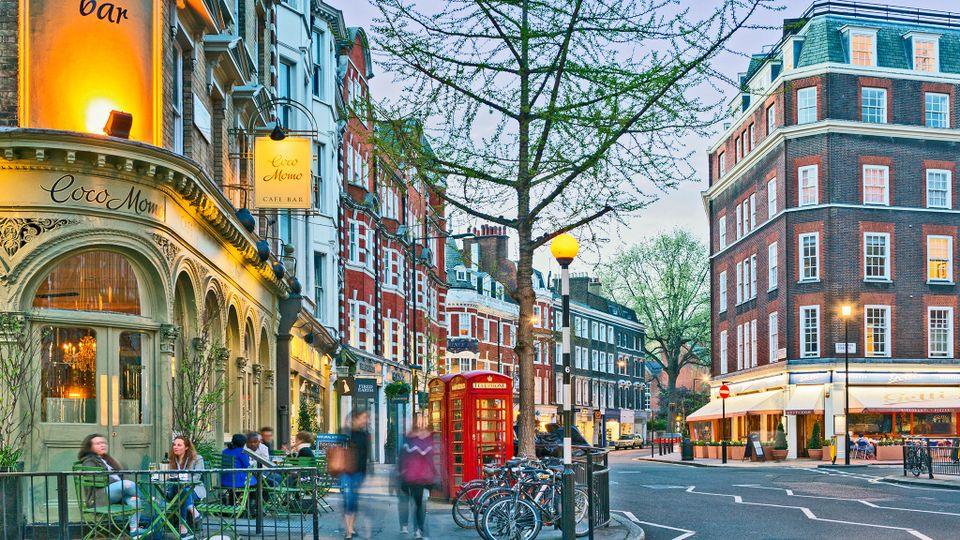How I (used to) travel

I miss traveling. Or more accurately, I miss relocating to different cities around the world with just a backpack and a healthy amount of curiosity.
So in memory of my backpacking days prior to COVID-19, I’ll share some random thoughts on how I used to travel. Perhaps my perspective would be of use to you when cross-border excursions are finally an option again.
My overall philosophy
Flexibility is key. The ability to depart at a moment’s notice and stay anywhere for as long as we desire is liberating and feels amazing. It allows us to avoid weekends and public holidays, when popular destinations are overrun by tourists. There are cost-saving benefits as well; we can take advantage of cheap airfare, limited time offers, and off-peak pricing.
Being a digital nomad is the best way to achieve this level of flexibility. If there’s one silver lining in the COVID cloud, it’s that working from home has become the accepted norm in many companies. If this remote work paradigm manages to persist after the pandemic, it’ll open the door for many more people to experience the wonders of itinerary-free travel.
My reservation strategy
When searching for cheap flights, I filter for options on Tuesdays and Thursdays first. These two days of the week have the least volume of business travel, which normally means that flying on these days are cheaper.
Before departure, I book a one night stay at most. In the past, I’ve even put off booking my first night's stay until after I arrive at the destination. There are several reasons why I like to do this (aside from the fact that I’m lazy).
The most important is that we never know whether a hotel or Airbnb is good until after we’ve stayed there. Pictures can be deceiving. I remember once when my wife and I stayed at an Airbnb in Paris. The apartment itself was fine; however, there was no proper heating and it got unbearably cold at night. We switched to a different place the next day.
Another reason, and also a tip: when I stay at a boutique hotel or Airbnb for one night, they always offer a discount when I mention that I loved my stay and ask whether I can book directly with them for a few more nights. This way, they save on the fees associated with Booking.com or Airbnb, and some of these savings are normally passed on to us.
What I pack
I prefer urban areas, so I tend to pack very light. Everything fits in a backpack. The most important items are those from the list in my post on minimalism. Other than those, I usually pack the following:
- Socks and underwear. I carry 5-6 days’ worth because these are so lightweight.
- A few (3-4) changes of clothing; exact items depend on the destination and season. I prioritize high performance and lightweight clothing that dry quickly when washed, such as Uniqlo Airsim and items from Lululemon.
- Additional bathroom stuff (toothpaste, dental floss, electric shaver).
- 1-2 small packs of tissue and hand sanitizer (a 10-pack of face masks would be necessary as well these days).
- A bottle of water and a snack.
- If the destination might require it, I’ll wear a jacket onto the plane.
A list of things I don’t pack:
- Extra shoes
- Extra jacket(s)
- Books (travel guides or otherwise)
- Hair dryer
- Non-prescription medicine
For anything that isn’t absolutely critical and costs less than $10, I have a “buy it there” philosophy. For example, I wouldn’t proactively pack an umbrella, beach sandals, extra bottled water, extra tissue, or over the counter medicine.
Things to do at the airport
I always get a local SIM card to avoid roaming charges. Many countries have very cheap local mobile data (especially in Asia). My iPhone (the Chinese version XR) supports dual SIM cards, which is an amazing feature. I’m never in danger of losing my home SIM card, and roaming is always available in case my local card has reception issues or stops functioning for some reason.
Most urban airports are a terminal station for at least one of the city’s subway lines, so I buy a public transportation card. This saves me from the hassle of purchasing fares every time, and I think the card itself is the perfect souvenir after I depart the city.
Don’t leave the airport without at least some local currency in cash form. I’m the lazy type, so I might exchange about $100-200 worth of small bills at an airport Travelex, which unfortunately has hefty transaction fees. Don’t be like me. It’s far more economical do it at money changers in the previous departure city.
I also tend to buy 1-2 bottles of water and a snack before leaving the airport, especially if it's late in the day and I don't know my way around.
Take public transportation and walk everywhere
I've never joined a tour group before, and I expect things to stay that way in the future. To me, traveling is a way for me to satisfy my curiosity about another culture and its people, and I don't need to visit popular tourist destinations to do this. For example, I lived in Japan for one year but I've never visited the Tokyo Tower or Mt. Fuji.
In large cities, subway interchange stations (where two or more subway lines intersect) are normally locations of interest, and the neighborhoods surrounding them are suitable for exploration on foot. Walking is the only way to discover the character of a city, allowing us opportunities to stumble upon random restaurants and side streets. I also think it's the best way to increase chance interactions with the local people.




